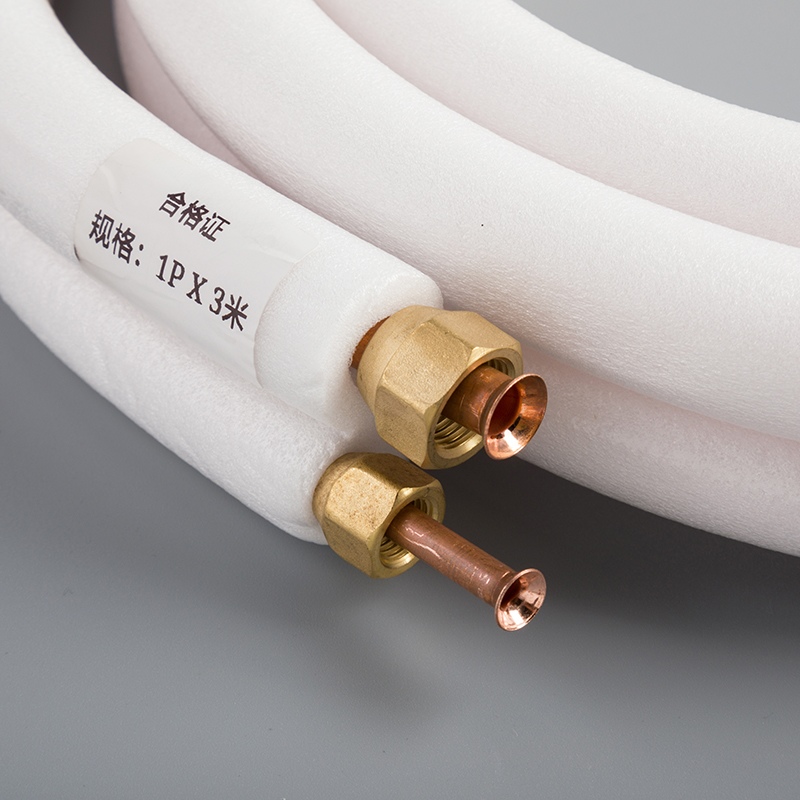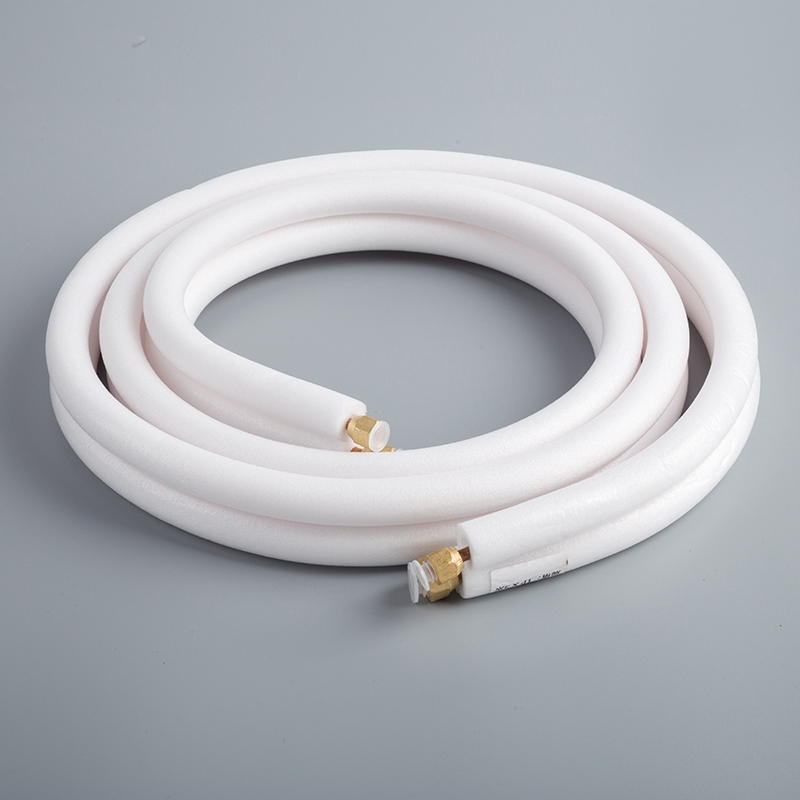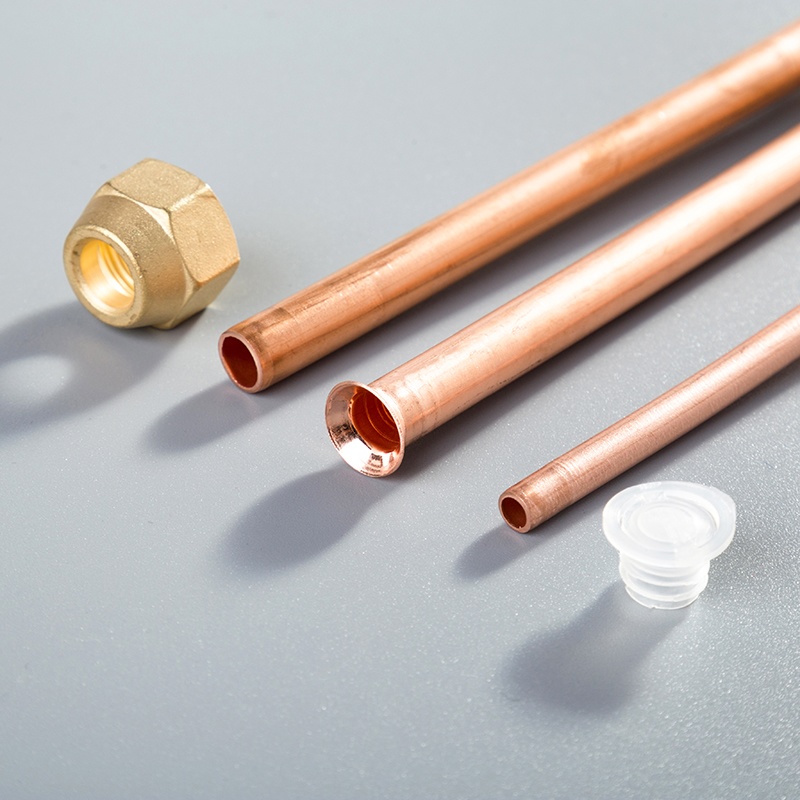Unveiling the Cooling Magic: Pure Copper Pipes in Air Conditioners

The escalating demand for space cooling has surged significantly over the years, with residential units surpassing 1.5 billion in 2022. This surge is attributed to a rise in energy consumption for cooling, impacting electricity grids and urban heat islands. As temperatures soar, the reliance on air conditioning intensifies, evident in Texas where a mere 1°C increase prompts a 4% spike in electricity demand. To address this growing need efficiently, it is crucial to investigate the impact of Pure Copper pipes on Air Conditioning cooling capabilities.
Investigate the impact of Pure Copper pipes on Air Conditioning cooling capabilities

Enhanced Heat Transfer
Copper pipes play a pivotal role in enhancing heat transfer within air conditioning systems. The thermal conductivity of copper is unmatched, allowing for efficient movement of heat. This characteristic enables air conditioners to cool spaces effectively by swiftly transferring heat from one area to another. Moreover, the efficiency in heat exchange facilitated by copper pipes ensures that the cooling process is optimized, leading to improved performance and energy savings.
In addition to boosting heat transfer efficiency, copper pipes exhibit exceptional durability and longevity in air conditioning applications. Their inherent corrosion resistance safeguards against environmental factors, ensuring that the pipes remain robust over time. This resistance not only prolongs the lifespan of the air conditioning system but also reduces maintenance requirements. Furthermore, the long-term performance of copper pipes remains consistent, providing reliable cooling capabilities throughout their usage.
By leveraging pure copper pipes in air conditioning systems, users can benefit from enhanced cooling efficiency and prolonged system lifespan. The combination of superior thermal conductivity, corrosion resistance, and long-term performance makes copper an indispensable component in optimizing air conditioning operations.
Thermal Conductivity
Copper stands out for its exceptional thermal conductivity, reaching up to 401 W/(m·K), which is approximately 20 times higher than stainless steel. This remarkable property allows copper to efficiently conduct heat, making it a superior choice for air conditioning systems. The high thermal conductivity of copper enables rapid and effective heat transfer within the system, ensuring optimal cooling performance.
When it comes to heat transfer efficiency, copper surpasses other common metals like aluminum. While aluminum excels in radiating heat due to its lower density, copper's ability to conduct heat efficiently makes it ideal for air conditioning applications. By utilizing copper pipes in air conditioning systems, users can benefit from enhanced cooling capabilities and energy efficiency.
Cooling Efficiency
The use of copper pipes in air conditioning not only enhances heat transfer but also improves overall cooling efficiency. Copper's superior thermal conductivity plays a crucial role in maintaining the desired temperature levels within indoor and outdoor units. In large-capacity systems, where cooling demands are high, copper pipes ensure that the heat exchange process is optimized for maximum efficiency.
Corrosion Resistance

Atmospheric Corrosion
Copper, known for its exceptional resistance to environmental factors, remains unyielding against various chemicals. Its innate ability to withstand corrosion ensures longevity and reliability in air conditioning systems. The durability of copper pipes is further enhanced by their resistance to oxidation and corrosion, making them a preferred choice for cooling applications.
Various Experts: Copper does not react with other chemicals, meaning that it is excellent at resisting corrosion.
Maintenance plays a crucial role in preserving the integrity of copper pipes. Regular upkeep ensures that the pipes continue to function optimally, maintaining their efficiency over time. By adhering to a maintenance schedule, users can prolong the lifespan of their air conditioning systems and prevent potential issues related to corrosion.
Water Corrosion
In humid conditions where moisture levels are high, copper pipes demonstrate remarkable performance by resisting corrosion. Their ability to withstand water-related degradation makes them a reliable choice for air conditioning units operating in diverse climates. Copper's resilience against water corrosion ensures consistent cooling performance even in challenging environmental conditions.
Unknown Expert: TP2 copper pipes have good corrosion resistance and are not susceptible to oxidation and corrosion caused by certain substances.
The utilization of copper pipes in air conditioning systems offers unparalleled benefits due to their exceptional resistance to atmospheric and water-induced corrosion. With minimal rates of degradation in various environments, copper remains a top contender for enhancing cooling efficiency and ensuring the longevity of air conditioning units.
Installers regard copper pipes as the trusted material of choice for air conditioning installations. The reliability and recyclability of copper make it a preferred option. Combining these advantages, Alibaba.com highlights that copper pipes are often the right choice for air conditioning systems. Jtcopper.com emphasizes the significance of good quality copper pipes in maintaining normal air conditioner operation and preventing refrigerant leaks. The benefits of using pure copper pipes in air conditioning systems are undeniable, ensuring efficient cooling, durability, and optimal performance for years to come.
See Also
Exploring the Enchantment of Copper Tubing in HVAC Systems
Revealing the Influence: Copper Piping in AC Systems
Uncovering the Development of Copper Pipes in HVAC
The Importance of Copper Tubing for Effective HVAC
Enhancing Performance: Improve AC Efficiency with Copper Tubing


